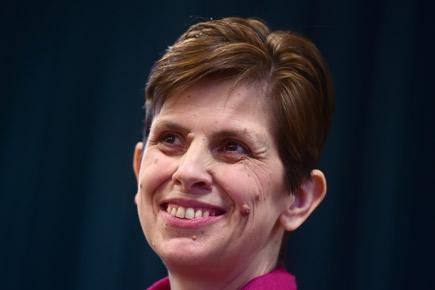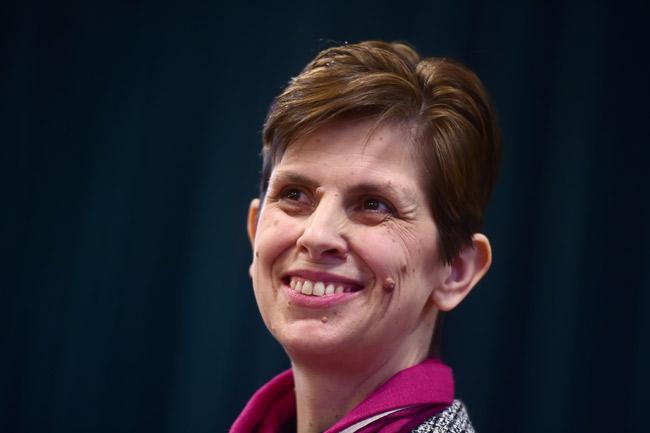UK on Wednesday announced its first female bishop, exactly a month after historic change was made to the law to end centuries of male domination of the Church of England

Reverend Libby Lane named the next bishop of Stockport
London: UK today announced its first female bishop, exactly a month after historic change was made to the law to end centuries of male domination of the Church of England.
ADVERTISEMENT
Reverend Libby Lane will become the new Bishop of Stockport, a post in the north of England that has been vacant since May.
 Reverend Libby Lane named as the next bishop of Stockport, in a dramatic new step for England's state church after years of wrangling and division over the move. Pic/AFP
Reverend Libby Lane named as the next bishop of Stockport, in a dramatic new step for England's state church after years of wrangling and division over the move. Pic/AFP
Lane has been the vicar at St Peter's Hale and St Elizabeth's Ashley in Cheshire since April 2007. The general synod, the church's governing body, had voted to back plans for female bishops in July and formally adopted legislation on November 17 and comes 20 years after women became priests.
Lane was ordained a deacon in 1993 and a priest in 1994, serving her curacy in Blackburn, Lancashire.
Since 2010 she has also held the role of Dean of Women in Ministry for the Diocese of Cheshire.
After being schooled in Manchester and then the University at Oxford, she trained for ministry at Cranmer Hall in Durham, according to her church's website. Her husband George 'a chaplain at Manchester Airport' is also a priest, and they were one of the first married couples in the Church of England to be ordained together.
The first women priests were ordained in 1994, but to date women have not been able to take on the Church's most senior roles.
Legislation to fast track women bishops into the House of Lords will be introduced to Parliament tomorrow.
Prime Minister David Cameron congratulated Lane and said: "This is an historic appointment and an important step forward for the Church towards greater equality in its senior positions". He also said that the government would bring forward legislation this week that would allow women bishops to sit in parliament's upper House of Lords.
 Subscribe today by clicking the link and stay updated with the latest news!" Click here!
Subscribe today by clicking the link and stay updated with the latest news!" Click here!






